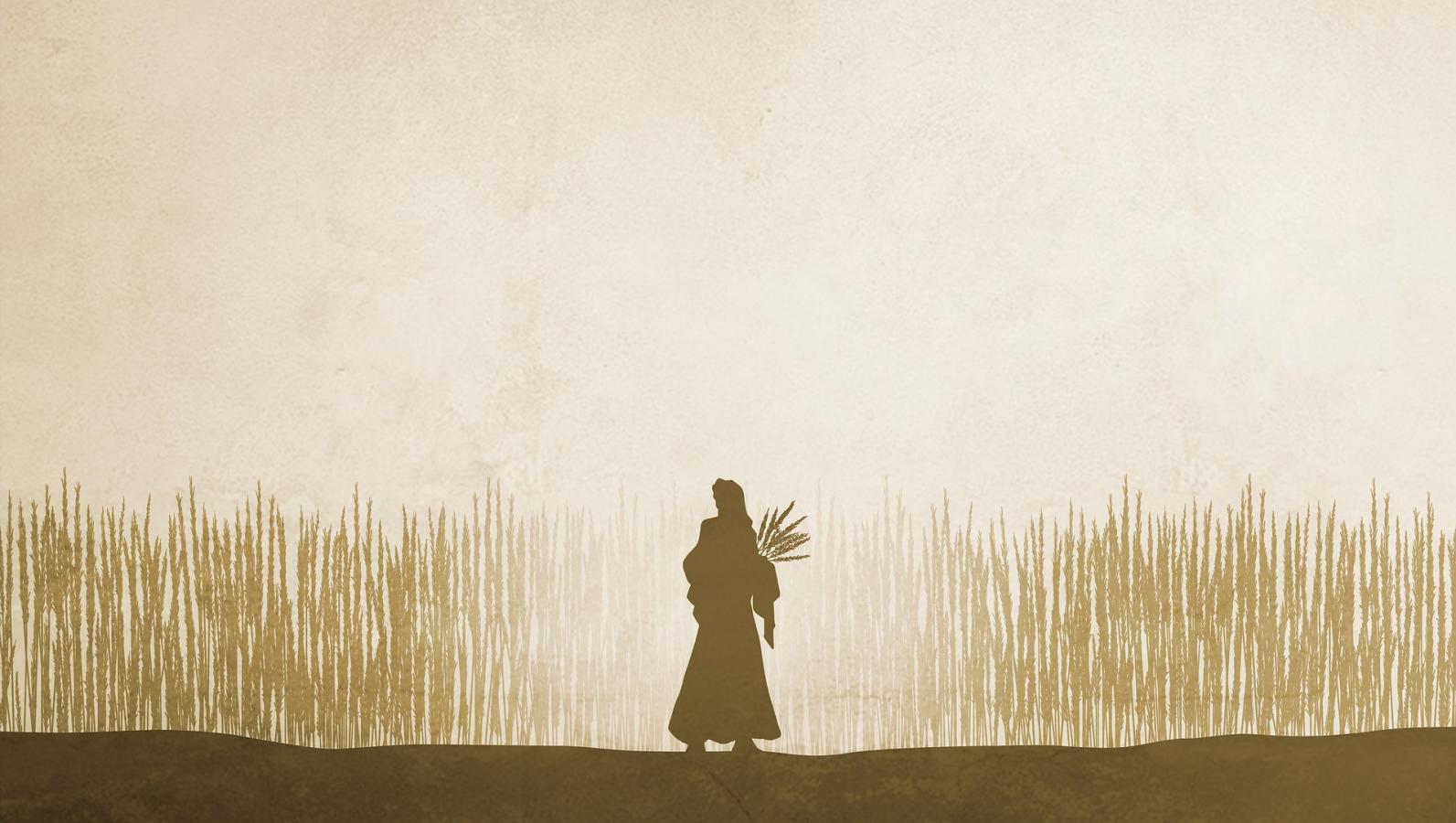The Book of Ruth is one of five megillahs that are part of Ketuvim, or Writings, the last third of the Hebrew Bible. It recounts the story of how Ruth, a Moabite, became a member of the Israelite nation and, eventually, the great-grandmother of King David. It is surprising, mysterious and romantic. It is traditionally read in synagogue on Shavuot.
Ruth is only four chapters long, but it’s a fast-paced story. Here is a brief summary:
Chapter 1: Ruth Follows Naomi
As our story opens, the land of Israel is hit by a terrible drought and so a man named Elimelech moves his family, his wife Naomi and two sons (Mahlon and Hilyon) from the Israelite city of Bethlehem to the foreign land of Moab. In Moab, Elimelech dies and the two sons marry Moabite women, Orpah and Ruth. Ten years pass, and now the sons die too, leaving Naomi in Moab with her two daughters-in-law.
Now bereft of husband and both sons, Naomi decides to return to Bethlehem in the land of Israel. Initially, her two daughters-in-law follow her, but she urges them to turn back to their own land, saying that she cannot provide for them, either financially or by producing new sons for them to marry. Eventually, Orpah turns back to Moab but Ruth clings to Naomi and pledges her eternally loyalty in one of the most famous speeches in the entire Hebrew Bible:
With your help, My Jewish Learning can provide endless opportunities for learning, connection and discovery.
Do not urge me to leave you, to turn back and not follow you. For wherever you go, I will go; wherever you lodge, I will lodge; your people shall be my people, and your God my God. Where you die, I will die, and there I will be buried. Thus and more may the LORD do to me if anything but death parts me from you.
Ruth 1:16–17
This chapter of Ruth provides an archetype for Jewish conversion.
Chapter 2: Ruth Finds Food — And a Man
Now that Ruth and Naomi are two widows newly arrived back in Bethlehem, finances are tight. In ancient Israel, farmers were required to leave gleanings in their fields — sheaves of grain that fell on the ground during the harvest process — for the poor to collect. Ruth determines that she will go glean to feed herself and her mother-in-law.
As luck would have it, Ruth ends up gleaning in the field of Naomi’s distant relative Boaz. Also as luck would have it, Boaz notices Ruth and inquires after her. When he learns of her loyalty to Naomi, he makes special arrangements for her comfort and even invites her to lunch and tells his harvesters to intentionally leave a little extra grain on the ground for her. By the end of the day, Ruth has collected a huge amount of grain. She ends up gleaning in Boaz’s field for the entire harvest season.
Chapter 3: A Midnight Tryst
At this point in the story, Naomi is concerned about Ruth’s future and determines that she should get married again. In ancient Israel, an unmarried woman was usually without much financial support. And without a child, Ruth could not hand down any family property in the name of her dead husband. Ordinarily, a childless widow would marry the next-of-kin who was required to “raise up seed” for the dead husband. Given that Boaz has treated Ruth so well, Naomi determines that he would be the best man for this job.
Naomi hatches a plan to make this request. She asks Ruth to dress finely and lie down on Boaz’s threshing floor in the middle of the night. Presumably, at the end of the harvest, Boaz will have a party and get drunk and end up asleep in that same threshing floor. In fact, that’s precisely what happens and Ruth snuggles in next to him and uncovers his “feet.” When Boaz wakes up, he is surprised and doesn’t even recognize her at first. But when she asks him to be her redeeming kinsman, he couldn’t be more pleased. He tells her that there is a closer relative who would have first priority to become her new husband, but if that man does not wish to he will more than gladly step into that role. He sends her home with even more grain.
Chapter 4: Boaz Claims Ruth As His Wife
In this chapter, Boaz goes to the city gate and meets the kinsman who is closer to Naomi than himself and has first claim on Naomi’s property and Ruth’s hand. Cleverly, he talks the man out of claiming the land and Ruth. The kinsman formalizes the agreement by removing his sandal before witnesses — this signifies that he has abandoned his claim to Ruth and Boaz is free to marry her.
Immediately, Boaz claims Ruth as his wife and declares that their children will carry on the name of Ruth’s deceased husband. And, indeed, Ruth conceives. She gives birth to Obed, who in turn became the father of Jesse, who in turn became the father of King David, the greatest king of Israel and the one from whose line the messiah will be be born. Thus, Israel’s greatest king and the messiah will both issue from a woman whose own people, the Moabites, are the enemies of Israel. But when it comes to loyalty, no one surpasses Ruth.
Want to learn more about the five megillahs, including Ruth? Sign up for our free email journey.



